I got a bad volume knob (potentiometer) on this PCB board. To replace the pot, I need to remove the board from the metal plate which is sealed with resin silicone potting compound as shown in the pictures.
I put once WD40 and Acetone on the black colored compound with no success. Also, heat could damage the PCB board and the parts on it.
What is the easiest and safest way to remove the PCB board from the metal plate?
Thanks
I put once WD40 and Acetone on the black colored compound with no success. Also, heat could damage the PCB board and the parts on it.
What is the easiest and safest way to remove the PCB board from the metal plate?
Thanks
Attachments
there is no easy way, try mechanical means, chemical wont workI got a bad volume knob (potentiometer) on this PCB board. To replace the pot, I need to remove the board from the metal plate which is sealed with resin silicone potting compound as shown in the pictures.
I put once WD40 and Acetone on the black colored compound with no success. Also, heat could damage the PCB board and the parts on it.
What is the easiest and safest way to remove the PCB board from the metal plate?
Thanks
there is no easy way, try mechanical means, chemical wont work
What kind of mechanical means?
If it is genuine silicone rubber, then silicone digester will work, but you ought not to need it, as silicone rubbers don't stick to anything, which is why they are used in mould making.
If it is actually a rubber like polyurethane, then it ought to be very well bonded to the components as polyurethanes are very aggressive in that department prior to its curing. You may find its glass temperature is likely below 85'c, so heat will make it flexible and that will be a way in.
kind regards
Marek
If it is actually a rubber like polyurethane, then it ought to be very well bonded to the components as polyurethanes are very aggressive in that department prior to its curing. You may find its glass temperature is likely below 85'c, so heat will make it flexible and that will be a way in.
kind regards
Marek
Trichloroethelene is a dangerous carcinogenic solvent used in the plastics industry but also dissolves most plastic resins. I have used it to reverse engineer potted assemblies.
But it does dissolve everything given enough time, DIP IC's, pcbs, coating on resistors etc etc. And plastic plumbing pipes. So if you can find it, take care with fumes, wear gloves and glasses and attack small bits a one time with a cotton bud or similar.
But it does dissolve everything given enough time, DIP IC's, pcbs, coating on resistors etc etc. And plastic plumbing pipes. So if you can find it, take care with fumes, wear gloves and glasses and attack small bits a one time with a cotton bud or similar.
I've used Trichloroethelene in a previous job.
Even if you can find someone that will sell you a small amount.
Don't use it.
It is one of the nastiest chemicals I have used.
If it contacts the skin it will feel like that area has been set on fire within seconds.
We used proper thick coated chemical gloves and even they were destroyed within a week.
Your best option is as others have said, mechanical removal.
Even if you can find someone that will sell you a small amount.
Don't use it.
It is one of the nastiest chemicals I have used.
If it contacts the skin it will feel like that area has been set on fire within seconds.
We used proper thick coated chemical gloves and even they were destroyed within a week.
Your best option is as others have said, mechanical removal.
Trichloroethelene (aka 'Tri') is indeed nasty, but used as a diluting agent for Tippex (no involvements), the infamous white blundercoverfluid. Sold in a combo.
The other variantion, more often used in industrial environments (cough) is called tetrachloroethelene (yes: 'Tetra'). Instead of three it has four chlorine atoms to dissolve its surroundings.
The silicone resin blob looks awful depressing...
The other variantion, more often used in industrial environments (cough) is called tetrachloroethelene (yes: 'Tetra'). Instead of three it has four chlorine atoms to dissolve its surroundings.
The silicone resin blob looks awful depressing...
We used it for removal of conformal coating on circuit boards.
We were using 'safe-t-sol' until it was banned as a carcinogen.
Shame because it was fantastic.
Removed all traces of coating without hurting anything on the boards.
Then we shifted to 1.1.1. (Trichloroethelene).
What a pain.
Again a carcinogen, stings the skin like hell, boards left in this stuff for to long could be written off from 'collateral' damage, evaporated extremely fast, and worst of all, even after an extended bath, the boards still needed mechanical scrubbing so we could do a full resolder of the surface mounted ic's.
Fun fact, some available chemicals in Australia may have been banned by other countries years or decades earlier.
So if your looking at using any chemical in Au, check to see if other countries have banned it.
We were using 'safe-t-sol' until it was banned as a carcinogen.
Shame because it was fantastic.
Removed all traces of coating without hurting anything on the boards.
Then we shifted to 1.1.1. (Trichloroethelene).
What a pain.
Again a carcinogen, stings the skin like hell, boards left in this stuff for to long could be written off from 'collateral' damage, evaporated extremely fast, and worst of all, even after an extended bath, the boards still needed mechanical scrubbing so we could do a full resolder of the surface mounted ic's.
Fun fact, some available chemicals in Australia may have been banned by other countries years or decades earlier.
So if your looking at using any chemical in Au, check to see if other countries have banned it.
I have used thrichoroethylene as a best mechanical degreaser and on some plastic as
a glue.
Until it was banned.
I never had any health issue, simply because I take care reasonably.
Of course those who sniff it can have trouble.
The troubles have been grossly exaggerated.
So, now we are stuck with products 3 times more expensive and 3 times less efficient.
I can only recommend to use it, if you can find some.
a glue.
Until it was banned.
I never had any health issue, simply because I take care reasonably.
Of course those who sniff it can have trouble.
The troubles have been grossly exaggerated.
So, now we are stuck with products 3 times more expensive and 3 times less efficient.
I can only recommend to use it, if you can find some.
- Status
- This old topic is closed. If you want to reopen this topic, contact a moderator using the "Report Post" button.
- Home
- General Interest
- Everything Else
- How to remove resin silicone potting compound on PCB boards
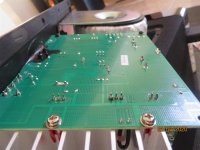
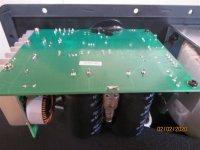
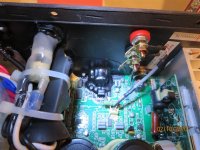
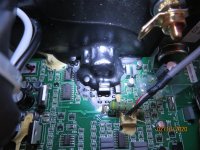
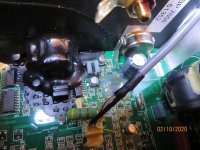
 Thread moved.
Thread moved.